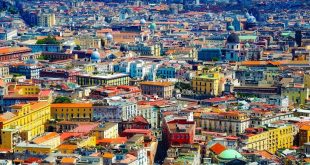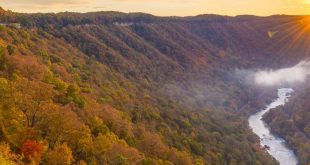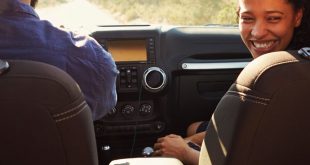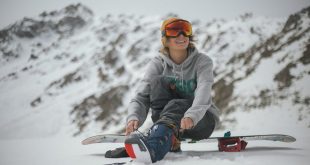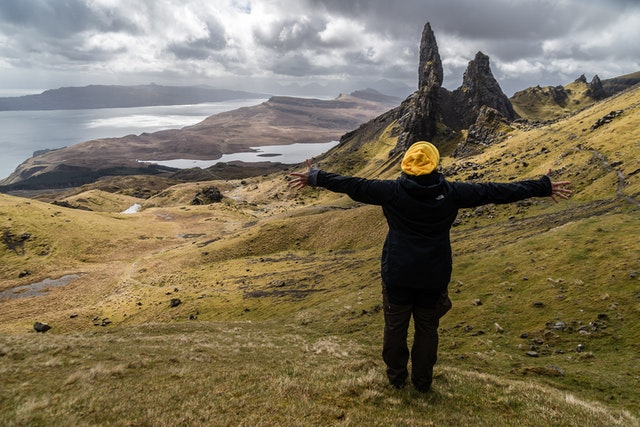
Most travel bloggers wander from one place to another, spending msot their life on the move. Accommodation may be an external factor, but it does play a vital role in the travel blogging industry. It’s essential to find a place that will make you feel at home while exploring new places and cultures, but also has all of the amenities necessary for your needs; think comfortable bed or living space with enough room in case friends visit during their stay.
Traveling enthusiasts, who are interested in spending time in the great outdoors, prioritize finding a place with beautiful scenery. They also consider looking into what kind of activities are available to enjoy while here – from outdoor pursuits such as hiking or mountain climbing to indoor recreation and poolside lounging. Apart from all these factors, bloggers also need to check up on the internet connectivity services as their job does not end after visiting their respective locations. They also need to develop and upload their content on respective platforms in order to start earning from it.
For example, Gatlinburg Hotels are one of the most popular places to stay in America. The place offers bloggers plenty for their content development needs, allowing them an easy opportunity to take advantage of hiking and biking nearby. In addition, it has historical exhibits and cabins that visitors can view while viewing black bears among other wildlife in its natural habitat.
Basic Tools Setting up the Travel Blog
Many people dream of becoming travel bloggers, and for good reason. Previously considered a hobby, blogging has now become a profession, making it one of the fastest-growing industries on the internet. Now that we have passed the critical COVID-19 pandemic phase, travel blogs will grow exponentially in a short period.
From posting selfies with exotic animals to filming around the world, travel bloggers are making a killing from sponsored content on the website and social media platforms. Yet, many people who love to travel have never made a single penny from their blog.
This blog post will explore how you can tap into this lucrative industry by detailing the essentials of setting up a blog for travel enthusiasts.
Here are some of the basic peripherals you need to invest in in order to set up your travel blog.
Laptop
When starting on the road with your travel blog, don’t skimp! You’ll need a laptop that can be used for both work and play. An excellent place to start is by looking at what’s lightweight in terms of carrying while still durable enough to withstand external factors and protect your data. Also, think about internal storage space and even RAM size if you’re going international soon, and invest in extra batteries.
Camera
One of the most critical aspects to travel blogging is storytelling with pictures. Of course, this can be easier said than done, as there are a lot of different factors that come into play when taking photos for your blog or Instagram feed. A good camera will allow you to capture those vibrant moments more easily and quickly without having any technical issues such as shutter lag!
Backup Power
The power banks and chargers will help you stay powered up on your next trip. A high-capacity charger is necessary when you have devices that need charging, be it phones, camera, or laptops!
Power banks can not only save you if your phone dies in the middle of nowhere but also allow you to capture and record everything without having to worry about the sbattery dying.
Digital Tools Required for the Blog
Let’s move towards the digital aspects you need to consider when creating a travel blog.
Name & Niche
You can’t just start a travel blog and hope for the best! It’s important to find your niche within this vast market. The possibilities are truly endless when it comes to what kind of niche can be developed for your travel blog. The only constraint is the imagination so let it run wild. Focus on what you’re passionate about, be it exploring foods in different countries, reporting on inconspicuous aspects of different cultures, visiting local bars and trying new drinks or featuring inspirational people from different areas.
Your niche will be your unique selling point, separating you from the rest and giving you a leg up the competition.
As far as the name of your travel blog is concerned, it’s always better to make sure that its descriptive of your niche, reflects the story behind your brand and boosts your search results (includes a main keyword if possible).
Hosting Platform
Get yourself a blog hosting service along with a domain name, which is affordable in price. Your blog will be unavailable to readers and search engines if you don’t invest in a reliable hosting plan from day one. It will cost you money, however, this is an investment that pays off! Blogs need the right tools for their unique needs, which means finding out what works best with your style before deciding host providers or domain names.
Design
This is the most crucial stage of your travel blog because it decides what visitors will see and how they will perceive your content. You can use design elements like text size or font to convey the tone of voice you want for each page; this is especially helpful if there is more than one type of post on a single webpage! A well-designed site also builds trust with readers – so how do we make sure our blogs are easy enough?
The answer is a WordPress theme, a free/low-cost piece of software that you can install on your blog, as it helps control and edit the overall look. Every theme will give your travel website an entirely new layout with varying display options for content from different sources. If you’re not sure which one would work best, test a few when starting out.
Plugins
A plugin is a smaller, more focused piece of software that helps tailor your blog for the travel industry, unlike themes that create an overall aesthetic on their own but don’t offer specific additions or functionality. Plugins enhance certain aspects in particular areas like navigation menus and post formatting options with ease.
For example, Yoast SEO is an innovative plugin to improve your blog’s organic search rankings. It will help you rank content higher in multiple search engine results. Similarly, social counter makes it easy for visitors to your blog, or any other webpage on the internet, for that matter, with one click. With this simple interface you can track how many times someone has shared your content and get helpful analytics concerning what channels are performing well at any given time.
Marketing Skills
Consider that you have a travel blog, but you are unable to grow and attract an organic audience. Blogging is not just about having a great time and snapping relevant photos. The story process also requires a person to be a little bit tech-savvy. If you’re not confident or have time learning, hire a digital marketing specialist from any of the freelance platforms. It will help save time and ensure that your developed content reaches the desired target audience with great ROI.
Final Thoughts
Travelling and blogging can be daunting tasks to do simultaneously. It takes every inch of energy and requires you to be extremely passionate and motivated. The reality of chasing this exploring pursuit can be fun but can be difficult at the same time because so many people want to do it, making the industry competitive.
Balance is key. It can be challenging for those juggling the demands and responsibilities that come with everyday life to find time for something as demanding as travel blogging, but don’t let this discourage you!
The essentials of setting up a travel blog are not tricky, but do take time and dedication. However, if you can develop the right mindset for success in this industry, then go ahead and try it! We hope that our guide has been helpful to you as you explore your options regarding starting or growing your own travel blogging business.
 World inside pictures Collect and share the best ideas that make our life easier
World inside pictures Collect and share the best ideas that make our life easier


